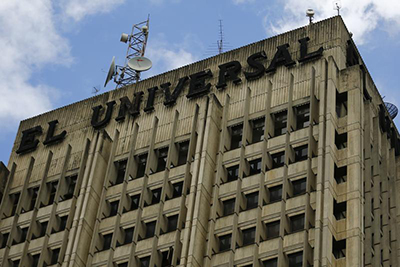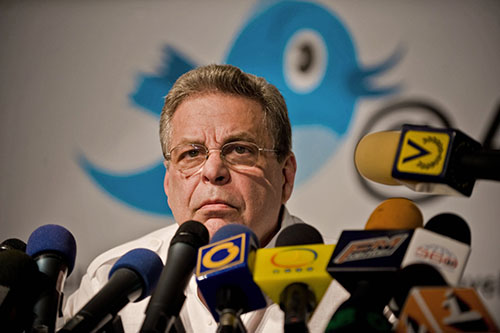
In Venezuela, online news helps journalists get their voices back
When Venezuelan President Hugo Chávez was rumored to be gravely ill four years ago, his socialist government was tightlipped about the diagnosis. Then in June 2011 a source in Havana, Cuba, where Chávez was being treated, told Nelson Bocaranda, a veteran columnist for the Caracas daily El Universal, that the president had cancer.
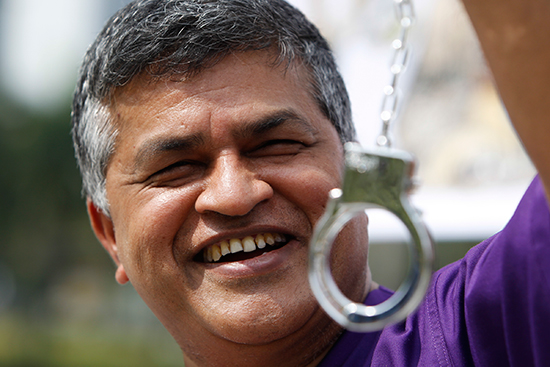
Drawing the line: Cartoonists under threat
On January 7, two gunmen burst into the offices of French satirical magazine Charlie Hebdo, killing eight journalists and bringing into focus the risks cartoonists face. But with the ability of their work to transcend borders and languages, and to simplify complex political situations, the threats faced by cartoonists around the world—who are being imprisoned,…
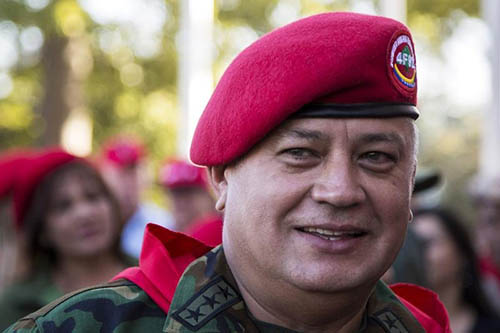
Venezuelan court bars media executives from leaving country
Bogotá, May 15, 2015–The Committee to Protect Journalists condemns a decision by a Venezuelan judge that prohibits 22 news executives from three independent media outlets from leaving the country due to a defamation lawsuit filed by one of Venezuela’s most powerful politicians. According to news reports, the lawsuit and travel ban came after three outlets…
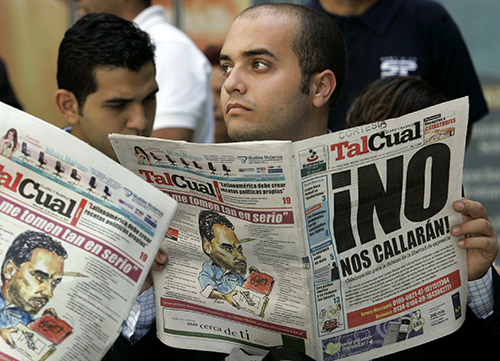
In Venezuela, Tal Cual under pressure but not defeated
Tal Cual, one of the few remaining Venezuelan newspapers critical of the government, is so shorthanded there’s often no receptionist on hand to let people in. Visitors must bang on the front door until someone in the newsroom notices. That can take a while because there are hardly any editors or journalists left.
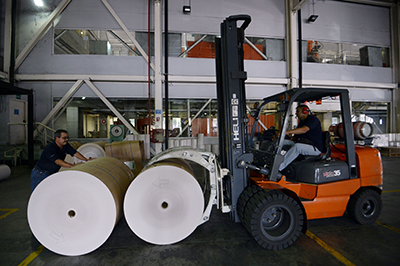
News rationed as Venezuela seeks to control newsprint imports
Venezuelan newspapers have traditionally handed out hundreds of courtesy copies in their lobbies and at hotels. But Correo del Caroní, an independent daily in the industrial city of Ciudad Guayana, treats every edition as if it were precious and now gives away just 14 copies, including one to the owner.
Radio station suspended in Venezuela
Bogotá, August 20, 2014–Venezuelan telecommunications regulator CONATEL shut down a critical radio station on Tuesday after refusing to renew the station’s expired transmission license, according to news reports. The move follows CONATEL’s suspension on Friday of a critical radio program on another station.
Venezuela violated freedom of speech by refusing to renew TV license, groups assert in court papers
Amicus brief filed by CPJ and New York City Bar Association New York, May 12, 2014–Venezuela’s May 2007 refusal to renew the broadcast license of Radio Caracas Television, or RCTV, violated Article 13 of the American Convention on Human Rights and is “a violation of settled inter-American principles of freedom of speech and the rule…
